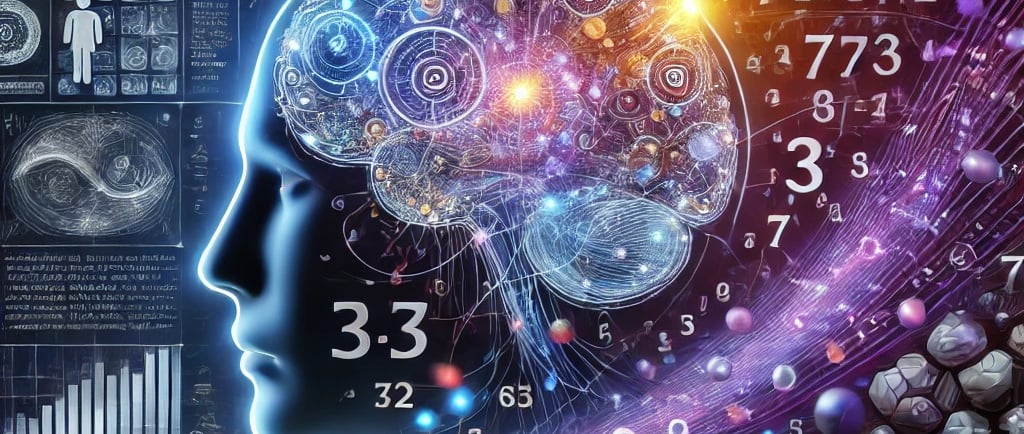Unlocking the Mysteries of Consciousness
Non-Speaking Voices, and the Future of Human Potential
3/2/20253 min read


Unlocking the Mysteries of Consciousness: Joe Rogan Explores Telepathy, Non-Speaking Voices, and the Future of Human Potential
In a recent episode of The Joe Rogan Experience, host Joe Rogan ventured into uncharted territory, diving deep into the enigmatic world of The Telepathy Tapes—a podcast and upcoming documentary that challenges everything we think we know about communication, consciousness, and human potential. The conversation, equal parts mind-bending and heartwarming, centered on non-speaking individuals with apraxia (a neurological disorder causing a disconnect between the mind and body) and their extraordinary abilities, from telepathy to multilingualism and beyond. Here’s why this episode is reshaping how we view the human mind.
The Telepathy Tapes: Breaking the Silence
At the heart of The Telepathy Tapes are non-speaking individuals who, despite being historically dismissed as cognitively impaired, are proving they possess profound intelligence and even "spiritual gifts." Through methods like spelling on letter boards or iPads—a gross motor skill easier to control than speech—these individuals communicate in ways that defy conventional understanding.
Key Revelations:
Telepathy as a Baseline: Parents, teachers, and researchers report instances where non-speakers accurately articulate unspoken thoughts, diagnose illnesses, or describe distant events. One mother shared how her son correctly identified an image she hadn’t even fully processed herself.
"The Hill": A mysterious telepathic "chat room" where non-speakers claim to connect, share knowledge, and even teach. Families worldwide corroborate stories of children referencing this shared mental space, suggesting a collective consciousness.
Savant Skills: Some non-speakers demonstrate abilities like speaking unlearned languages, interpreting hieroglyphics, or playing complex music—skills they attribute to accessing a universal "akashic record" of knowledge.
The Battle for Validation
Despite mounting anecdotal evidence, these individuals face systemic skepticism. Organizations like the American Speech-Language-Hearing Association (ASHA) dismiss spelling as "pseudoscience," citing concerns about facilitator influence. Critics argue this stance perpetuates a human rights crisis, denying non-speakers access to education, careers, and social participation.
Historical Parallels:
The resistance mirrors past battles over sign language and Braille, once labeled “pseudoscience” before becoming mainstream. “Spelling is like glasses for reading,” says the podcast’s creator. “It’s a tool—not a crutch.”
Consciousness, Love, and the Post-Materialist Paradigm
Rogan and his guest explored the idea that consciousness—not matter—may be fundamental to reality. Cambridge biologist Rupert Sheldrake’s concept of "morphic fields" (shared mental blueprints guiding behaviors like flocking birds) and neuroscientist Julia Mossbridge’s work on precognition (linked to feelings of love) suggest a universe where interconnectedness transcends physicality.
The Role of Love:
Non-speakers describe love as “anything that unifies”—a force enabling telepathic bonds. Educators report "thought-sharing" sessions where students communicate silently, emphasizing that skepticism and materialism often stifle these innate abilities.
Skepticism, Charlatans, and the Fear of Being Fooled
While charlatans muddy the waters, the episode underscores a critical distinction: those exploiting vulnerability vs. families and teachers witnessing consistent, verifiable phenomena. Rogan pondered whether societal noise—social media, materialism—drowns out our latent abilities. “If love is the superpower,” he mused, “why aren’t we measuring that?”
The Bigger Picture: A Call for Open-Minded Science
The conversation pivoted to institutional barriers. Traditional labs may fail to capture telepathy’s nuances, much like studying lightning bugs in a lab misses their synchronized glow in the wild. Advocates urge scientists to adopt Jane Goodall-esque immersion, prioritizing lived experience over sterile experiments.
Human Rights at Stake:
Denying spelling access, argues the podcast’s creator, is akin to denying sign language—a denial of personhood. With stories of non-speakers excelling in careers (one now advises the documentary’s graphics team), the message is clear: presume competence.
Beyond the Podcast: What’s Next?
As The Telepathy Tapes transitions to film, its team includes non-speaking consultants ensuring authentic representation. Meanwhile, Rogan’s audience grapples with a paradigm shift: What if telepathy isn’t supernatural but a dormant human skill atrophied by disuse?
Final Thoughts:
The episode leaves us with a challenge: Reject cynicism, embrace curiosity, and consider that the next frontier of science may lie not in outer space but within the untapped potential of our minds. As Rogan concluded, “Truth might be uncomfortable, but it’s never harmful—and these voices deserve to be heard.”
